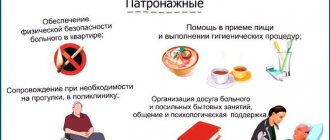Guardianship and trusteeship are the main forms of family arrangement for children left without parental care, as well as one of the ways to protect the rights of incapacitated citizens according to Russian legislation.
The Federal Law “On Guardianship and Trusteeship” of April 24, 2008 N 48-FZ regulates the concept of guardianship and trusteeship, over whom guardianship and trusteeship are established, the establishment of guardianship, the activities of guardians and trustees, features of the forms of family placement of children and the procedure for placement of children left without care parents.
Who is recognized as incompetent or not fully capable?
If a person, due to some mental illness, is unable to understand the meaning of the actions he performs, as well as to control his actions, such a person may be declared incompetent.
If a person who is addicted to gambling, has a drug or alcohol addiction, causes material damage to the family through his actions, such a person may be recognized as partially incompetent.
Only a court can recognize a citizen as incompetent or partially capable in the manner established by the civil procedural code.
Who is a guardian and to whom is he appointed?
A guardian is a citizen who provides protection, living conditions and protection of the rights of citizens who are unable to do this on their own.
This category of persons includes:
- children left without parental support under 14 years of age;
- incompetent citizens officially recognized as such, regardless of age.
Children need the protection of adults if:
- their legal parents are absent for a long time due to objective circumstances (for example, they are on a long business trip);
- they are officially deprived of parental rights;
- parents declared missing;
- they are unable to fulfill their parental responsibilities due to illness or incapacity.
If it is established that parents are ignoring their responsibilities for the upbringing and development of children or that their lives are being threatened as a result of aggressive behavior of parents or leaving their children in a dangerous situation, a temporary guardian may be appointed. Temporary guardianship can become permanent if the negligent parents are subsequently deprived of their rights.
The guardian, in essence, performs the function of a parent, solving all the life problems of the child under his care independently.
When it comes to guardianship of an incapacitated citizen, the guardian is also fully responsible for his living conditions and representation of interests in society. He is not obliged to coordinate his actions with him, because he is unable to determine their significance due to incapacity.
What is patronage?
Patronage is established over an adult capable citizen in the event that due to his health condition he cannot fully exercise his rights and responsibilities.
Such a citizen may be assigned an assistant by the relevant authorities. The assistant is appointed voluntarily, i.e. with the consent of the assistant himself, as well as with the consent of the citizen over whom patronage is established.
All actions of the assistant within the framework of patronage will be carried out in accordance with the agency agreement concluded between him and the citizen or the property trust management agreement. Upon expiration of such an agreement, patronage is terminated.
The guardianship and trusteeship authorities are obliged to control all the actions of the assistant performed by him in the interests of the citizen over whom patronage is established.
Guardianship of incapacitated adults
If an adult suffers from a mental illness and cannot be responsible for his own actions, then in this case guardianship is established over him. In this case, deprivation of legal capacity must be established in court.
Rights and responsibilities of an adult guardian:
• act on behalf of the ward in all transactions;
• contact medical institutions to provide assistance to the person under your care;
• demand payment of benefits, pensions and other payments due to the ward;
• apply to court and other government bodies to protect the rights of the ward;
• protect the property of the ward;
• prevent a citizen from causing harm to himself, others or their property;
• if the patient’s mental condition has improved, and this is confirmed by the medical organization, apply for the return of partial or full legal capacity.
Guardianship and trusteeship bodies: functions, tasks and powers
The guardianship and trusteeship body is a local executive body of a certain subject of the Russian Federation.
The main tasks that the guardianship and trusteeship body is obliged to perform are as follows:
- protection of the rights and legitimate interests of citizens under guardianship, trusteeship and patronage;
- control over the activities of guardians, trustees and assistants, as well as over organizations to which incapacitated citizens may be sent;
- supervision over the safety of the property of citizens under guardianship and trusteeship.
The guardianship and trusteeship body, within the powers assigned to it:
- identifies those people who need guardianship/trusteeship/patronage;
- carries out the procedure for establishing guardianship/trusteeship;
- conducts inspections of the activities of guardians/trustees;
- appoints (selects, trains) or removes guardians/trustees/assistants;
- gives permission to carry out transactions with the property of citizens under guardianship/trusteeship;
- checks the living conditions of the wards.
Who can be a guardian (trustee)?
Only adults with legal capacity can be appointed as guardians (trustees). In addition, the personal and moral qualities of the guardian and his relationship with the ward are taken into account.
A prerequisite is the consent of the guardian (trustee) to fulfill such duties. Close relatives of a citizen (child) have a priority right to become guardians (trustees) for him.
A person deprived of parental rights, or if he has a criminal record for a deliberate crime against the life and health of citizens, cannot be appointed as a guardian (trustee).
Guardians and trustees perform their duties free of charge, with the exception of the case when the Guardianship and Trusteeship Authority, acting in the interests of the ward, can conclude an agreement on the performance of duties with the guardian (trustee) for a certain fee.
The established fee can be allocated from income received from the property of the ward, or from local budget funds.
Instead of the established fee, the guardianship authority may allow the guardian to use the property of his ward free of charge.
The basis for establishing guardianship (trusteeship) is the Act of the guardianship authority. This act may indicate the period for which guardianship is established. The actions that a guardian (trustee) has the right to perform in the interests of his ward may be indicated.
Release from obligations
A guardian and trustee may be released from performing their duties in the following cases:
- the child was adopted or returned to his parents;
- a person improperly fulfills his obligations, leaves the child without supervision and assistance (in this case, he will not only be deprived of the appropriate status, but will also be held accountable depending on the severity of the consequences);
- the guardian or trustee himself asked to be released from fulfilling obligations to the child.
Disposal of the ward's property
The property of the ward is transferred to the guardian (trustee) according to the inventory drawn up by the guardianship authority. The guardian is obliged to take care of the ward’s property, protect it, and help it generate income.
The guardian (trustee) has the right to dispose of the income of the ward (pension, alimony, social benefits, etc.) only in the interests of the ward himself and only with the permission of the guardianship authority.
The exception is the monthly expenditure of funds in the amount of the subsistence minimum for the maintenance of the ward. For these amounts, permission from the guardianship authority is not required.
All transactions with property (transactions on the alienation of property) - sale, exchange, lease, donation, pledge, etc. require permission from the guardianship authority.
If the ward has real estate or expensive movable property and it needs management, the guardianship authority can conclude a trust management agreement for this property with the manager appointed by it.
The manager also does not have the right to make transactions with property without the prior permission of the guardianship authority.
Rights and responsibilities of a trustee
The main task of the trustee is to prevent his wards from committing stupid and rash acts, to protect them from attacks by third parties, to give them a good upbringing and to allow them to receive a decent education.
The wards can carry out small household transactions themselves, for example, buying food, hygiene items, etc. They can get a job on their own and spend their salary or stipend on certain needs. However, larger agreements will require the permission of the trustee, and the transaction will need to be completed together with him. If necessary, the ward will represent the interests of the above citizens. The state created such a form as guardianship to protect persons who, due to youthfulness or stupefying of consciousness, do not always give an accurate assessment of their actions.
Guardianship can also be issued to care for an elderly person on his initiative if the citizen is limited due to health reasons. This form takes more of a form of patronage.
From 14 to 16 years of age, living with a ward is mandatory. And after 16 years of age, it is possible to go separately after receiving permission from the guardianship authorities, if this is in the interests of the child, for example, going to college in the city.
Similar to guardianship, an annual report is required to be completed and submitted.
Appointment of a guardian (trustee) for a child
The legislation establishes the following grounds for appointing a guardian (trustee) for a child:
- the child's parents died;
- the child’s parents were deprived (or limited) of parental rights;
- the child’s parents are recognized as legally incompetent;
- the child’s parents have been seriously ill for a long time, and this leads to the fact that they cannot support and raise their child;
- if the child’s parents are absent for a long time (for example, long business trips);
- parents refuse to raise and support their children;
- if parents, by their actions or, on the contrary, by inaction, create a threat to the life and health of their children, interfere with their development and upbringing;
- The child’s parents themselves have not reached the age of 16.
A guardian (trustee) for a child is appointed by the guardianship and trusteeship authority at the child’s place of residence.
In addition to general restrictions on the circle of persons entitled to become a guardian, the Family Code establishes additional restrictions regarding guardians (trustees) of minor children.
The following cannot be appointed as guardians (trustees) for a child:
- persons with deprivation or restriction of parental rights;
- convicted persons;
- patients with alcoholism or drug addiction;
- those who were previously a guardian, but were removed from their duties;
- former adoptive parents, if the adoption was canceled due to their fault;
- persons who, due to health reasons, cannot fulfill the responsibilities of raising a child.
A guardian or trustee is obliged to educate his ward, take care of his health, physical, spiritual, moral and mental development.
The method and form of raising a child under guardianship or guardianship is chosen by the guardian independently, but the opinion of the child, advice and recommendations of the guardianship authority must be taken into account.
The guardian (trustee) can choose an educational institution for the ward, but in any case he is obliged to ensure that the child receives a general education.
A child under guardianship has the right to communicate with his parents and other relatives, and the guardian or trustee has no right to interfere with this (unless, of course, this is contrary to the interests of the child).
Guardians of minor children must assist their wards in exercising their rights and fulfilling their duties, as well as protect them from abuse by third parties.
Children under guardianship (trusteeship) have the right to:
- living in the family of a guardian (trustee);
- care and upbringing, education, development, respect from the guardian;
- communication with parents and other relatives;
- expressing their opinion when resolving issues affecting their interests.
Children under guardianship (trusteeship) retain the right of ownership or right of use to residential premises. If they do not have housing, they have the right to receive it in accordance with housing legislation.
Children under guardianship or trusteeship are entitled to state support.
At the federal level, the following payments are provided in 2014:
- one-time benefit when establishing guardianship - 13,742 rubles for each child;
- monthly allowance for maintaining a child under guardianship until he reaches the age of one and a half years is 2,576 rubles for caring for the first child and 5,153 rubles for caring for the second and subsequent children.
In addition to federal payments, each subject of the Russian Federation provides:
- monthly payments for the maintenance of children under guardianship (trusteeship) until they reach the age of 18 years (or until they graduate from universities);
- additional benefits, cash payments or in-kind assistance.
Detailed information on each subject of the Russian Federation can be found by contacting the “Consultations” section on our website.
You might be interested in the mind map “How to get a subsidy for utility bills.”
Or see HERE how to get maternity benefits.
Who can get guardianship over in Russia?
Expert opinion
Stanislav Evseev
Lawyer. Experience 12 years. Specialization: civil, family, inheritance law.
In accordance with Art. 32 of the Civil Code of the Russian Federation, guardianship is established over persons who are especially in need of state protection :
- over children aged from birth to 14 years of age, deprived of the care of their natural mother and father;
- over adult citizens deprived of legal capacity by a court decision due to a mental disorder or alcohol abuse (drug use).
The peculiarity of such citizens is the lack of full legal capacity. Therefore, they cannot independently perform civil duties and bear civil rights. To provide for their needs and protect their personal and property rights, a guardian must be appointed.
A relative of a socially vulnerable person, a stranger, or the head of a specialized organization can act as a guardian.
Let's look at the cases in which guardianship is assigned.
Registration is required within 30 days from the date of:
- the appearance of the status of a child left without parental care;
- entry into force of a court decision on deprivation of legal capacity.
Before a guardian is appointed, responsibility for a socially vulnerable person rests with the guardianship department at the place where the child was identified or at the location of the court that deprived the citizen of legal capacity.
The law does not provide for the need to appoint guardianship over elderly persons. If an elderly citizen is not deprived of legal capacity, then he independently protects his rights, regardless of age.
If an elderly citizen needs outside care, then it is possible to apply for patronage.
Termination of guardianship and trusteeship
Guardianship and trusteeship are terminated in the following cases:
- if the guardian (trustee) or the ward himself has died;
- if the duration of guardianship was specified, then after the expiration of this period;
- if the warded citizen is recognized as fully capable;
- upon removal or release of a guardian (trustee) from performing duties.
In addition, guardianship of minor children is terminated in the following cases:
- When a minor turns 14 years old, guardianship ends; when a minor turns 18 years old, guardianship ends;
- if a minor marries, then guardianship is terminated;
- guardianship over a child whose parents have not reached the age of 16 terminates when his parents reach the age of majority;
- if the minor is returned to his parents or adopted;
- if the ward is placed in a special institution (boarding school, medical institution, etc.).
Guardianship of adults
Like guardianship, guardianship can also be established over adults. Its legal features are that it applies to wards who are not deprived, but limited in their legal capacity. The tasks and functions of a guardian appointed to an adult ward are similar to those of a guardian over a teenager, but the conditions of the appointment will be completely different:
- a guardian for a teenager is appointed in any case, solely due to age;
- For an adult, a guardian is appointed only on the basis of a court decision to limit legal capacity.










